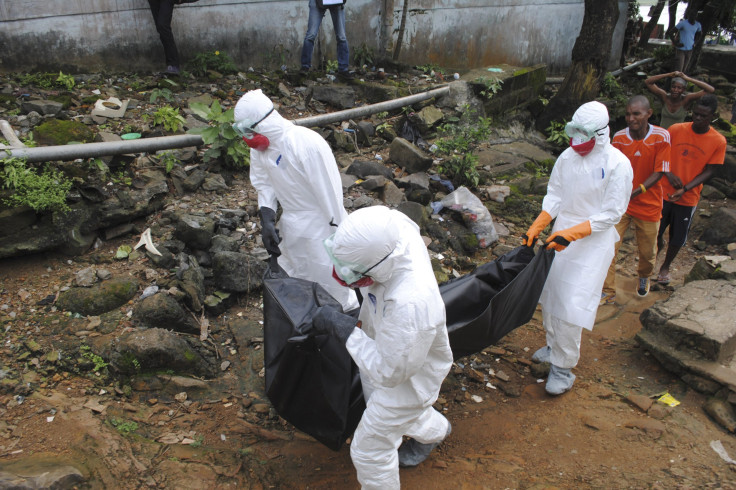Ebola: Liberia, Sierra Leone and Guinea Hit by Lack of Doctors and Aid

Despite the exponential growth of the Ebola epidemic, especially in Liberia, aid is not pouring into West Africa.
The US has spent a little over $100m in the region and this could reach $250m if Congress approves requests for more aid.
However, according to UN estimates, there is need for at least $600m to control the outbreak and mitigate the economic devastation in the three West African nations - Liberia, Sierra Leone and Guinea.
Last week, the US government said it would provide 1,000 beds and $10m to bring in health care workers from other African countries. But experts note that what is missing is the promise of getting American doctors into the region.
Sophie Delaunay, executive director of the US office of Medecins Sans Frontieres (MSF or Doctors Without Borders) told NBC News: "We know what needs to be done but we don't know why it's not being done. It's incomprehensible to us."
MSF has 2,000 staff in the region, 10% of them foreigners, and the rest locally hired.
To many, the answer to Delauney's question lies in the fact that the outbreak does not pose a significant risk to the developed nations, and hence the lack of interest.
They believe only a government like the US can fill in the large gaps in infrastructure and healthcare needs. Aid groups are severely constrained by resources and cannot do more.
The US Centres for Disease Control has sent 70 staffers to the region, but mostly for coordination and education work.
Oliver Johnson of the King's Sierra Leone Partnership at Connaught Hospital in Freetown says: "The international response to the outbreak remains virtually non-existent, in terms of actual impact on the ground.
"At Connaught ... our isolation unit is full with adult and pediatric cases and we have suspected cases in the waiting area and emergency room that we can't isolate — I don't know how much longer the hospital will be able to stay open in these circumstances."
Liberia's woes
In Liberia, the worst-hit nation, there is a shortage of everything crucial to control the spread of the epidemic.
Families search in vain for treatment centres that are woefully inadequate to address the needs of the 1.5 million.
Often the sick are turned away, with only the serious cases taken in at the centres that are overwhelmed by the crisis.
Sick people wait in the sun outside treatment centres. Some barely manage to reach the centres and fall down on the pavement.
At the JFK treatment centre run by the Liberian government, Jatu Zombo sits on the pavement outside cradling her five-year-old son, while her 10-year-old boy sits nearby, reports the Washington Post.
Both children are visibly ill. Their father had died four days earlier, and Zombo spent days calling for an ambulance that never came. Finally, her brother paid someone $20 in US currency to bring them to JFK.
There are just half a dozen ambulances in the capital Monrovia.
The few workers toil under difficult conditions between disposing of bodies, disinfecting the place and caring for the sick.
Public anger is on the rise against government and relief workers for not lifting bodies left outside homes. There is a breakdown in basic services with even electricity and water supplies uncertain.
Groups like MSF need people with a range of skills, from water and sanitation engineers to architects. "One person can make a significant contribution," says Daniel Lucey, an adjunct professor and infectious disease specialist at Georgetown University, now preparing for a six-week tour of Liberia with the MSF.
The Ebola toll is fast approaching 5,000, with 2,400 people dead, the World Health Organization said.





















